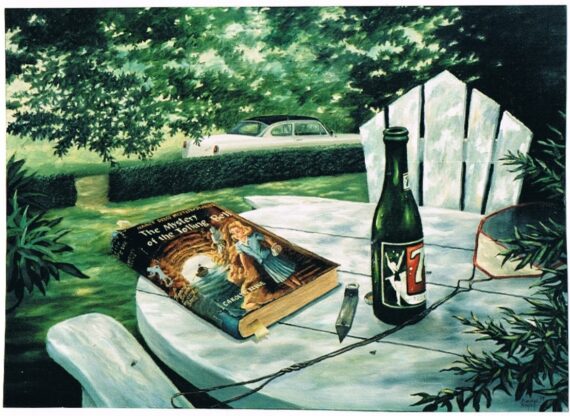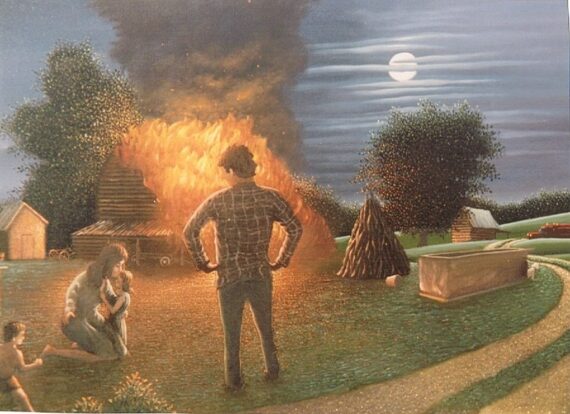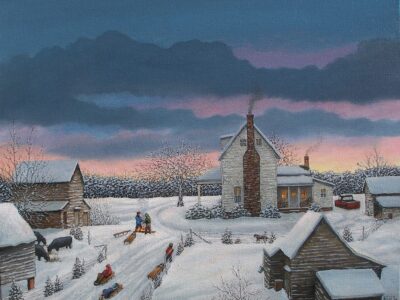My uncle, Eldridge Bagley, has made a living as a professional artist since the 1970s. His oil paintings emphasize mid-20th century life in rural Virginia and often depict our family members. Through hard work and perseverance, he discovered his audience and secured representation from prestigious art galleries, as well as appearing at engagements in such museums as The Corcoran in Washington, D.C. He still exhibits his work at museums and public gatherings to appreciative crowds. Many people purchase his works.
 Eldridge paints scenes of places, people, and situations he knows and loves. His fans enjoy his work and are loyal to him. Still, over the years, he has adjusted to the marketplace to please his growing audience. For example, for some exhibits, he might paint fewer large pictures, so he can focus on medium-sized works. When he saw a large demand for still-life works, he painted more of those. In other words, while he enjoys painting, he is mindful and adaptable to market changes. This is a necessity for any artist, including writers who want to earn money for their work.
Eldridge paints scenes of places, people, and situations he knows and loves. His fans enjoy his work and are loyal to him. Still, over the years, he has adjusted to the marketplace to please his growing audience. For example, for some exhibits, he might paint fewer large pictures, so he can focus on medium-sized works. When he saw a large demand for still-life works, he painted more of those. In other words, while he enjoys painting, he is mindful and adaptable to market changes. This is a necessity for any artist, including writers who want to earn money for their work.
On the other hand, Eldridge has left space for joyous creativity that thrives without market considerations. For him, part of that space is in writing songs. Sometimes his wife, Beth, performs his songs in public. The songs are lovely, with verses speaking of rural Virginia, and often Christmas. I would call this part of his creativity a place for his soul.
 Eldridge says, “We do need to learn and know our market and take steps to reach that market. As we know, it doesn’t take long to perceive who your audience is and what appeals to them. I know full well that some of my works are more likely to sell than others because I have learned, to a degree, the buying patterns of my customers. Yet, for the sake of growth and being true to my inner self, I have persisted in expanding the borders of creativity by occasionally departing from the expected, both in subject matter and style. Thankfully, most of those departure pieces have sold. I like to think that my audience saw something in those works that spoke to them, or they were willing to ‘take the journey’ with me to unexplored territory!”
Eldridge says, “We do need to learn and know our market and take steps to reach that market. As we know, it doesn’t take long to perceive who your audience is and what appeals to them. I know full well that some of my works are more likely to sell than others because I have learned, to a degree, the buying patterns of my customers. Yet, for the sake of growth and being true to my inner self, I have persisted in expanding the borders of creativity by occasionally departing from the expected, both in subject matter and style. Thankfully, most of those departure pieces have sold. I like to think that my audience saw something in those works that spoke to them, or they were willing to ‘take the journey’ with me to unexplored territory!”
What territory will you explore today?






